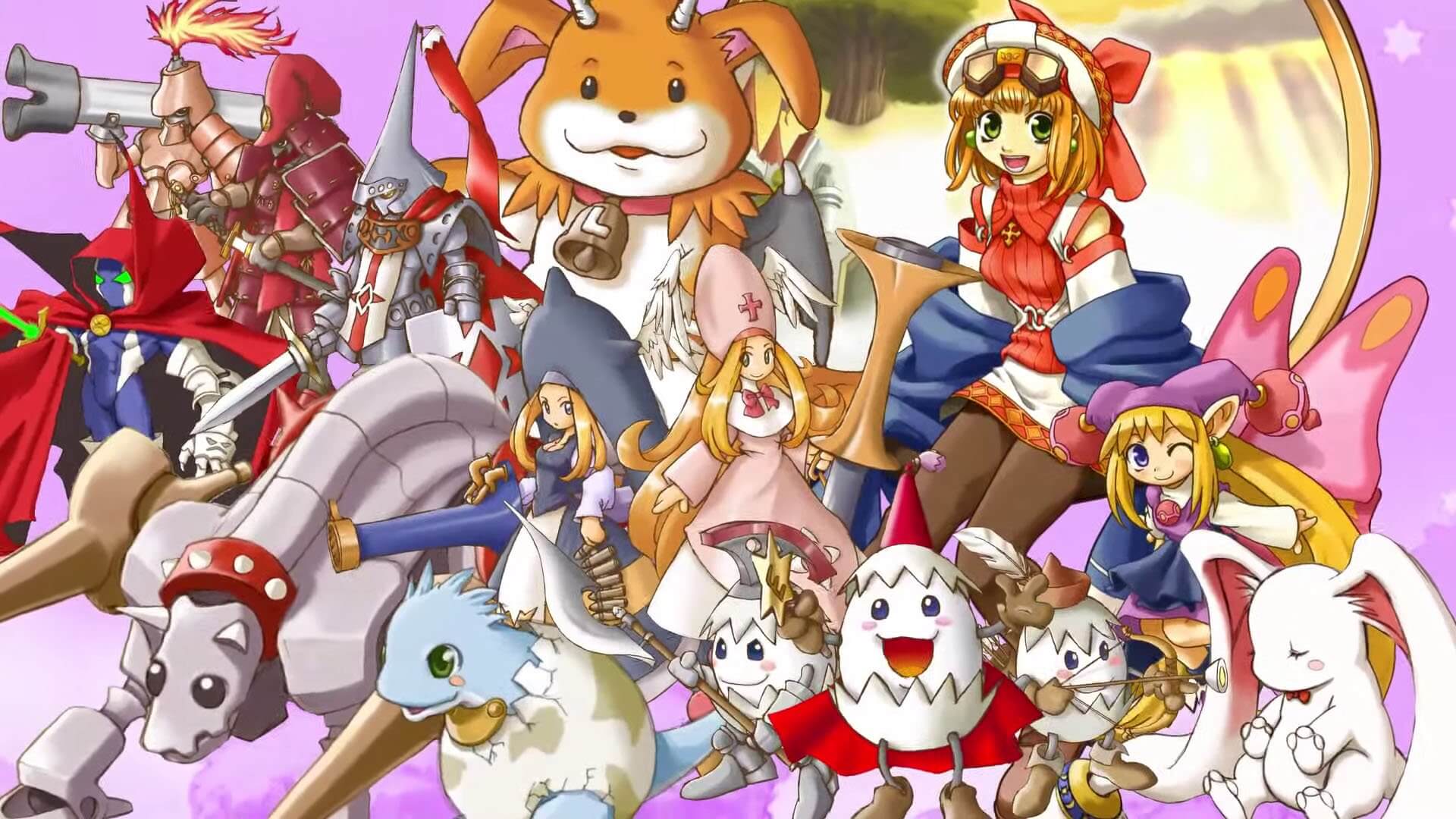Originally released in 1998, Rhapsody: A Musical Adventure can be seen as the grandfather of games like La Pucelle: Ragnarok and Disgaea. Many mechanics used in this PS1-mixture of JRPG and SRPG laid the foundation for future NiS-titles, in regards to unit movement and summoning, but the general gameplay and mood play a rather different tune to their monster-slaying successors.
A Sweet Melody
Rhapsody: A Musical Adventure comes across as infantile, if you’d only manage to endure the somewhat sweet but overall mundane prologue. The main protagonist Cornet fell in love with a prince and always dreams about becoming his future wife. When their hearts finally beat for each other, a villainous witch makes her appearance and petrifies the young heir to the throne. Cornet seeks a remedy for her a prince as well as the chance to unleash vengeance upon said evil witch. Saving the world might be a positive by-product.
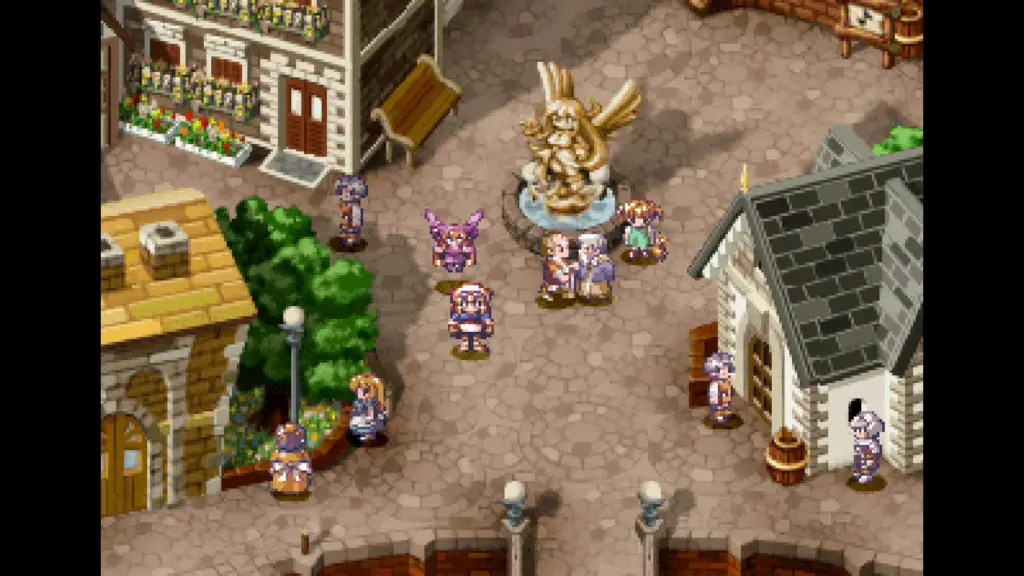
What sounds like a Disney Movie, could be just that. I’ll admit that finishing the prologue was a bit of a slog, but the writing made me chuckle quite often. However, the story does gain weight and depth as the player follows Cornet on her rescue mission, adding dark and mature topics like abuse, both physical and psychical. Cornet herself has to question her very own motives about why she helps the prince and how much altruism might be involved ─ or not.
Cornet has a puppet fairy sidekick and the unique ability to communicate with puppets, which comes in handy once we start talking about combat. Luckily, the talent to sing, play instruments and dance are also parts of her repertoire, otherwise, the adventure might become rather unmusical. I was in for a beautiful surprise when Cornet started to sing for a few minutes straight. Moments like these made me appreciate the game very early on, despite the seemingly non-engaging storyline. There is a quality to the music that oozes with emotions and passion, quickly picked up by the player.
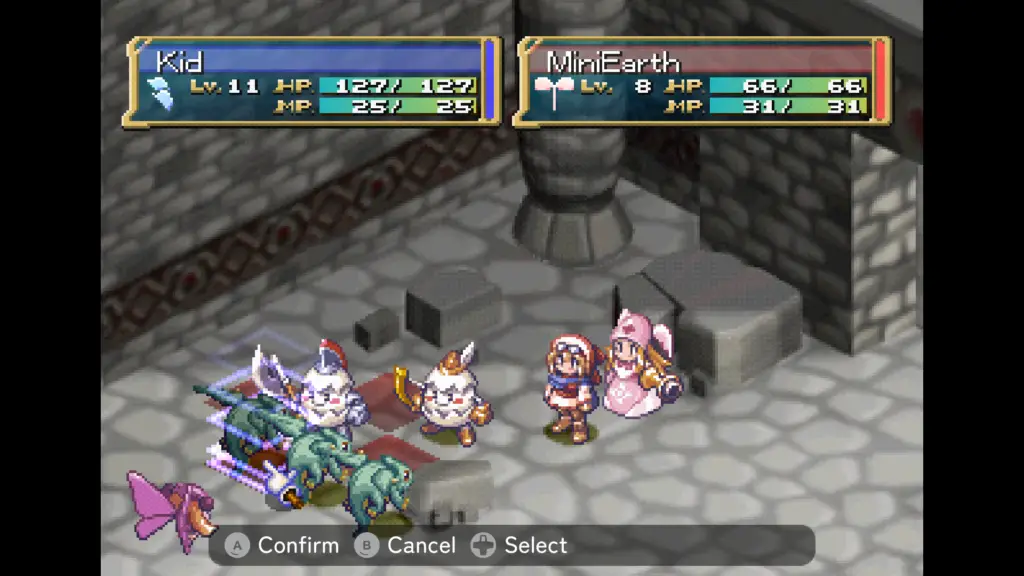
Combat, on the other hand, leaves much to be desired if you compare it to other SRPGs in general or NiS-titles like Disgaea in particular. It might have been the easiest RPG I ever played, even on hard mode. Enemies not only die very fast but barely manage to leave a scratch on your party. This leads to the fact that the movement of Cornet and her puppets takes longer than the actual fighting. There are no elemental advantages involved, and no strategic positioning. This is not me complaining though, but rather realizing that instead of an actual SRPG, this is a musical with random encounters and exploration.
During battle, Cornet utilizes her special horn to buff her allies. It also fills up a special meter, akin to a limit break, which can be used to unleash a couple of powerful yet highly unusual attacks. You hear me, Pancakes? While all of this is helpful and entertaining, it is also highly unnecessary as you’re never facing a challenge that would justify the time investment. The random encounters are exactly that: very random.
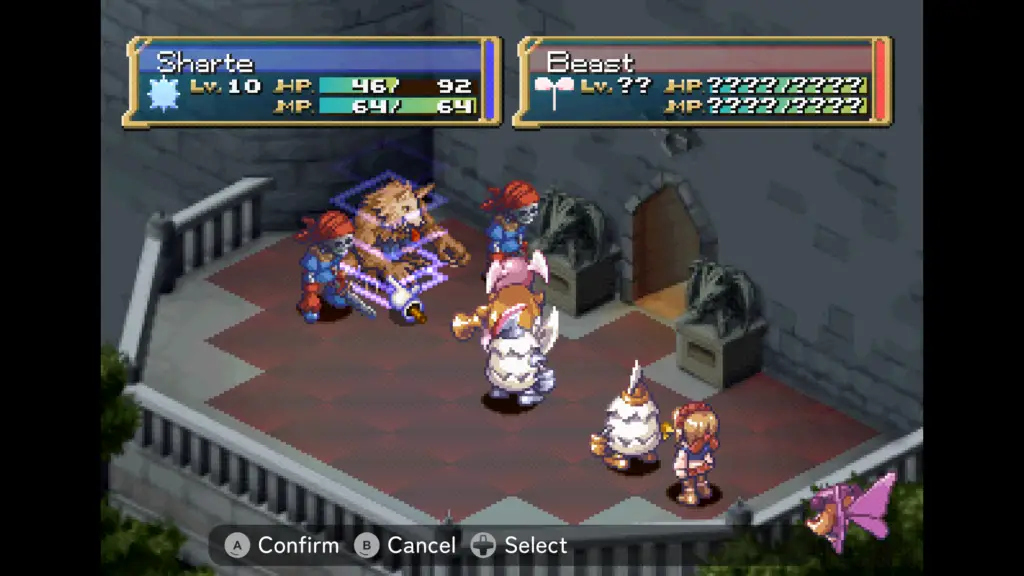
What could have used a bit more randomness though are the dungeons you’re going to explore, once Cornet set out on her journey to find some elemental stones and save her prince from petrification. These are straightforward at best and mildly confusing at worst, due to their design patterns. They do look rather samey and dull, and I would have a hard time remembering their differences.
Party Hard
Since Cornet speaks to puppets, she often finds and convinces them to join her cause. Their designs range from winged teddys to an egg with an axe and have this very special PS1 charme. Using them in combat gives experience that leads to increased levels, eventually unlocking new skills and abilities. Again, most of the time, you never need them. In fact, I found myself using the auto-move and -battle option quite often, simply because it’s way faster and less tedious. There are not a lot of strategies involved anyway so, as a turn-based fan, I keep my precious time and think to myself that I change my mantra to “just one turn less.”

Your puppet army can be further upgraded with items like earrings, giving them more stats or another helpful boon. You’re not going to find any crazy development options as you had in La Pucelle: Ragnarok, the game that would further pave the way to Disgaea. It won’t make any sense either since Rhapsody can be beaten in around 8-15 hours, depending on your playstyle. There is no need to power-level or even grind at all, which helps focus on the story and interactions instead.
The overall tone is humorous, and I found the writing very enjoyable. Typically, every NPC has a couple of lines to say, and while many of them can be overlooked relatively quickly, it’s nice to see the amount of creativity that went into the world-building. Only musical acts are voiced, but you’re allowed to either listen in English or the original Japanese version. I very much enjoyed the English singing, but some of the NPC voices felt very out of character.
Finale
The story of Rhapsody is lighthearted and fun, with plenty of humor and romance. The characters are all likable, and the game does a good job of developing them over the course of the story. The end can be surprisingly deep and, given the fact that finishing Rhapsody: A Musical Adventure might take less than 10 hours for some players, can be reached quickly and easily. The writing comes with a couple of typos, and the translation didn’t always feel like I got what I intended, but it still feels serviceable.
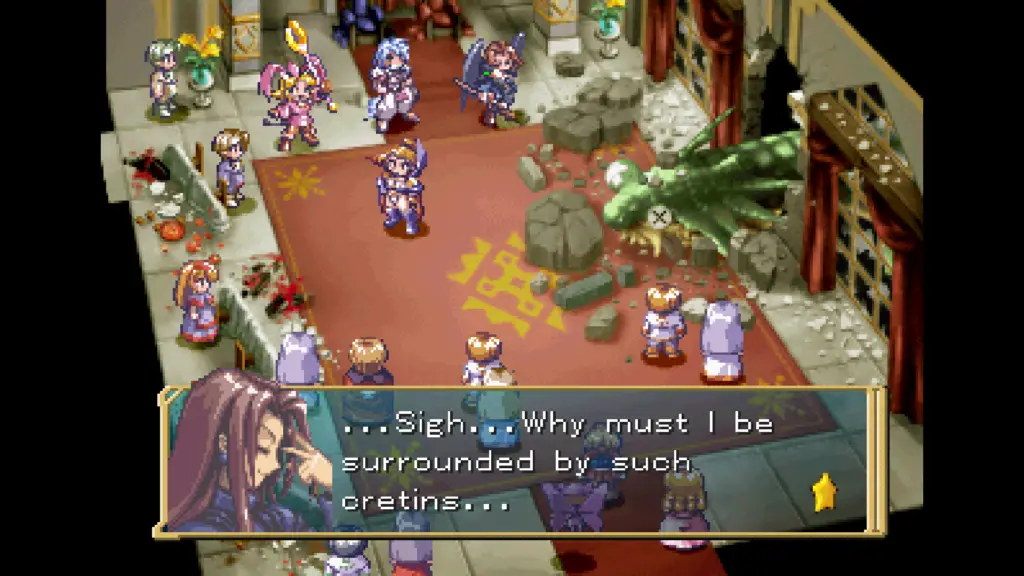
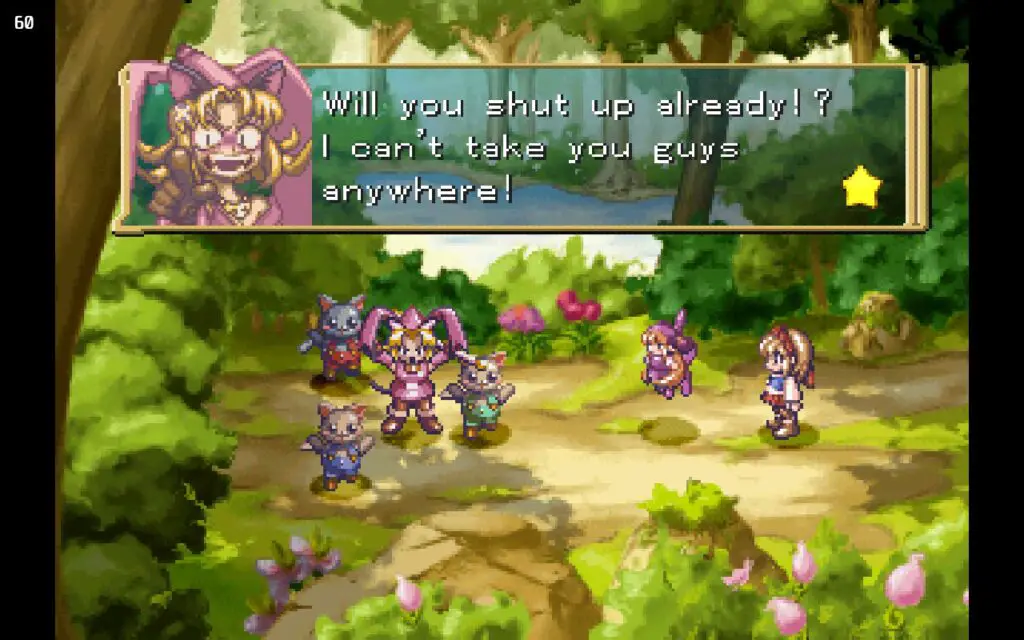
The difficulty is not something you’d tie together with this bit of musical adventure. The combat hasn’t much to offer, neither for seasoned nor newbie players. Although there are strategic elements in the game, they are very top-level, and even if you choose not to engage with them, it is unlikely that the game will give you a hard time in return.
In the end, Rhapsody is what the name suggests: A Musical Adventure. The songs are amazing, and I found myself happy every time I could sit down, only listen for a couple of minutes, whenever Cornet hit another central plot point, feeling the urge to express her feelings with a tune. Don’t go into the game expecting to be challenged. Enjoy a part of video game history with a lovely little PS1-game that keeps you entertained for a few rainy afternoons. It is also an excellent way to see the roots of the popular NiS-games that would follow soon after, albeit on another platform.
Disclaimer: The key for Rhapsody: A Musical Adventure was generously provided by NiS America.

